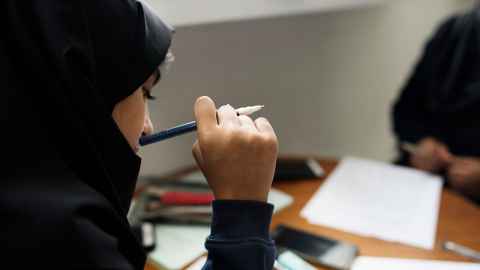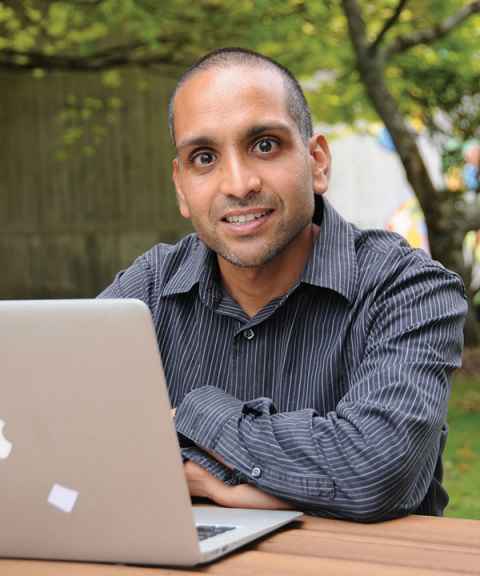Second chance at education for children in conflict and disaster zones
7 October 2021
One in three children and youth living in conflict or natural disaster zones are not at school. What can be done to get them back into education for a better chance in life?

This is the ambitious challenge ahead of Dr Ritesh Shah at the University of Auckland, alongside a team of experienced local researchers in Colombia, Jordan, Nigeria, Pakistan and Uganda.
With the goal of creating viable and relevant learning opportunities for the millions of children out of school in these countries, the team will work with the Accelerated Education Working Group (AEWG), an inter-agency group made up of UN agencies, bilateral donors, government officials, and a range of non-government organisations.
The group promotes flexible, accelerated education programmes (AEPs) for children and young people who are too old to re-enter schooling, condensing the curriculum and allowing over-aged learners to complete their education in a shorter amount of time.
Dr Shah doesn’t underestimate the size of the task.
“Where solutions have been put in place, they are often piecemeal and temporary,” he says. “Think, for example, of a 15-year-old Nigerian boy living in the northeast of the country who, having been out of school for several years because of insecurity and violence in his community, now decides he wants to go back but doesn’t want to spend four more years completing his primary education.
“He finds an accelerated programme that allows him to complete his primary education in two years, and equips him with the basic literacy and numeracy skills, and which he enjoys immensely because it also teaches him a vocational trade, such as carpentry. But halfway through, the classes abruptly stop because the NGO running the programme has run out of funds from its donor.”
The result: he ends up leaving the programme without any qualification and no opportunity to continue on to junior secondary school.

Another scenario, says Dr Shah, is the Baluchistan province in Pakistan, where nearly three out of five girls remain out of school due to insecurity, poverty, and threats of violence.
“Accelerated programmes have been set up here with proven results in terms of enabling girls to safely access and remain in school, because they engage closely with community leaders and have a flexible curriculum which is responsive to the needs of these students.
“And yet, only 257 centres operate across the province and serve less than one percent of the total out-of-school population in the area.”
These programmes remain limited in scope and are not meeting the huge need. Now Dr Shah says, the task is to find out how to better advocate so more children and youth can attend, with much of it coming down to who runs and funds them.
“For instance in several of the countries, we’re finding international donors are supporting education for refugees. A flood of organisations then rush in and run accelerated education programmes for this group but only for a short time. Meanwhile, other groups of out-of-school learners miss out, and governments fail to take ownership of such programmes.”
Another scenario, says Dr Shah, is the Baluchistan province in Pakistan, where nearly three out of five girls remain out of school due to insecurity, poverty, and threats of violence.
Dr Shah’s 44-month project, titled ACCESS (Accelerated Change for Children’s and Youths’ Education through Systems Strengthening), is the result of a long-standing partnership with the Accelerated Education Working Group, who have worked alongside him to strengthen the case for these crucial programmes.
ACCESS is supported through the E-Cubed Research Fund, set up by Dubai Cares, a philanthropic organisation focused on promoting inclusive, high quality education, particularly in emergencies and crises.
The project is based at the Centre for Asia Pacific Refugee Studies (CAPRS) at the University of Auckland’s Faculty of Education and Social Work.